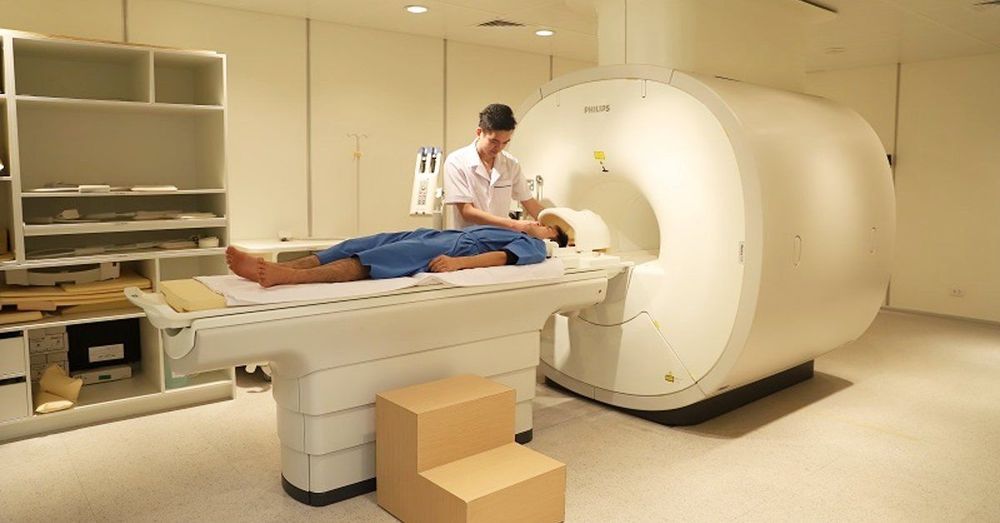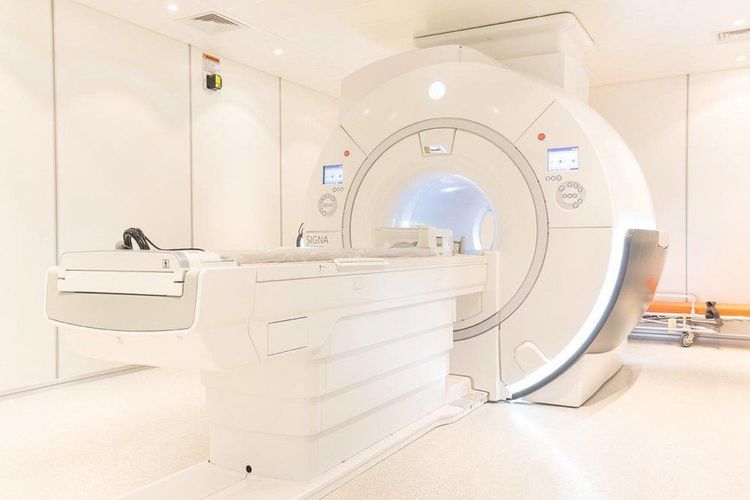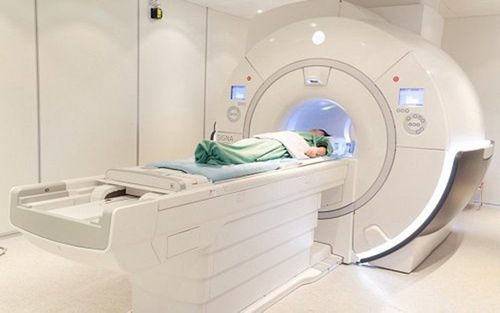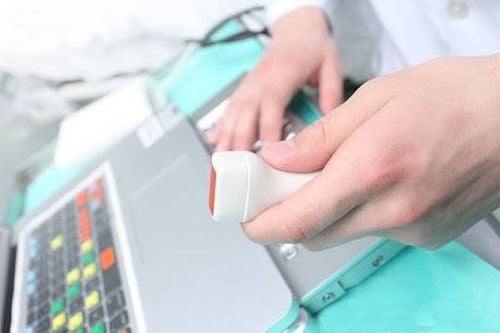This is an automatically translated article.
Posted by Doctor Trinh Le Hong Minh - Department of Diagnostic Imaging, Vinmec Central Park International General Hospital.Pelvic magnetic resonance imaging is also commonly done to determine the spread of cancerous masses in the pelvis, also known as staging. Staging helps guide future cancer treatments and monitoring. Pelvic MRI can help stage cervical, uterine, bladder, rectal, prostate, and testicular cancers.
1. When is pelvic/pelvic magnetic resonance imaging needed?
Pelvic/pelvic magnetic resonance imaging may be performed for women with any of the following symptoms or signs:
Abnormal vaginal bleeding. A pelvic mass (discovered on physical pelvic exam or detected on other imaging means). Uterine fibroids. Pelvic tumors during pregnancy Endometriosis (usually done after an ultrasound) Pain in the lower abdomen Unexplained infertility (usually done after an ultrasound) Pelvic pain no explainable (usually done after ultrasound)

Người bệnh bị đau bụng vùng dưới nên chụp cộng hưởng từ vùng chậu
Pelvic/pelvic MRI may be performed in men with the following signs or symptoms:
Masses or swelling in the scrotum/testicles. Unexplained undescended testicles (not visible on ultrasound) Unexplained pelvic or lower abdominal pain Unexplained urination problems, including problems when urinating or after urinating. Pelvic/pelvic magnetic resonance imaging can be performed in both men and women when:
There are abnormalities on the pelvic radiograph. Congenital abnormalities of the hip Hip injury Unexplained hip pain

Người bệnh bị chấn thương vùng chậu
2. What problems does an MRI of this area indicate/warn?
Abnormal results in women after pelvic magnetic resonance imaging may be caused by:
Abnormalities in the uterine muscle Bladder cancer Cervical cancer Colorectal cancer Congenital malformations of organs Reproductive endometrial cancer Endometrioma Ovarian cancer Ovarian growth Problems with the reproductive organs, such as the fallopian tubes Fibroids
Abnormal results in men can be caused by:
Bladder cancer Colorectal cancer Testicular cancer Abnormalities in both men and women can be caused by:
Avascular necrosis of the femoral head Anomalies congenital of the hip Bone tumors Hip fracture Hip osteoarthritis Osteoarthritis - bone marrow

Bệnh viêm xương - tủy xương có thể phát hiện thông qua chụp cộng hưởng từ
3. Are there any important issues before and after taking the MRI in this area?
Before pelvic magnetic resonance imaging:
You should tell your doctor about your health problems, recent surgeries or allergies, and whether you are currently pregnant or not. Magnetic fields will not cause harm, but may cause some medical equipment to fail. Most orthopedic implants are not affected, but you should always tell the technician if you have any metal devices in place. The guidelines for eating and drinking before a pelvic MRI will vary depending on the specific disease. In most cases you will take your medicine as usual. Please leave your jewelry at home and wear cool, comfortable clothing. You may be asked to wear a hospital uniform. If you're nervous or have claustrophobia, you can talk to your doctor to ask for a light sedation prior to the pelvic MRI.

Chuẩn bị bệnh nhân chụp cộng hưởng từ vùng chậu
After pelvic MRI:
Most patients can go home immediately after the pelvic MRI and return to their daily activities. Patients who are sedated or have a contrast agent injected may need a short period of observation. If contrast is used, you may develop a subcutaneous hematoma at the injection site; but this is harmless and will go away on its own. When a large hematoma causes swelling and discomfort, apply ice first; After 24 hours, you apply warm water to dissolve the hematoma. Vinmec International General Hospital is the first unit to put into use the 3.0 Tesla silent magnetic resonance imaging machine, bringing outstanding advantages. Magnetic resonance imaging at Vinmec will have the following outstanding advantages:
High imaging technology, first-class safety by accuracy, non-invasiveness and no radiation High image quality, allowing doctors to evaluate comprehensive, does not miss even the smallest lesions in organs Minimize noise, create the most comfort for the patient when taking pictures, reduce stress, this helps to improve image quality and shorten Maximum scanning time MRI with Silent technology, especially for the elderly and children, people with weak health, patients undergoing surgery...

Máy chụp cộng hưởng từ 3.0 Tesla công nghệ Silent tại Vinmec
MRI at Vinmec can take 3-D vascular reconstruction without injecting magnetic contrast, can reconstruct and handle the patient's motion disturbances Maximum support for specialists in intensive examination , detect diseases of the brain, neck, spine, musculoskeletal, cardiovascular and cancer most accurately. To register for examination and treatment at Vinmec International General Hospital, you can contact Vinmec Health System nationwide, or register online HERE.
References: Mountsinai.org
MORE:
What are the benefits of Magnetic Resonance Imaging (MRI)? Does magnetic resonance imaging (MRI) require fasting? Does magnetic resonance imaging (MRI) have any effect?














